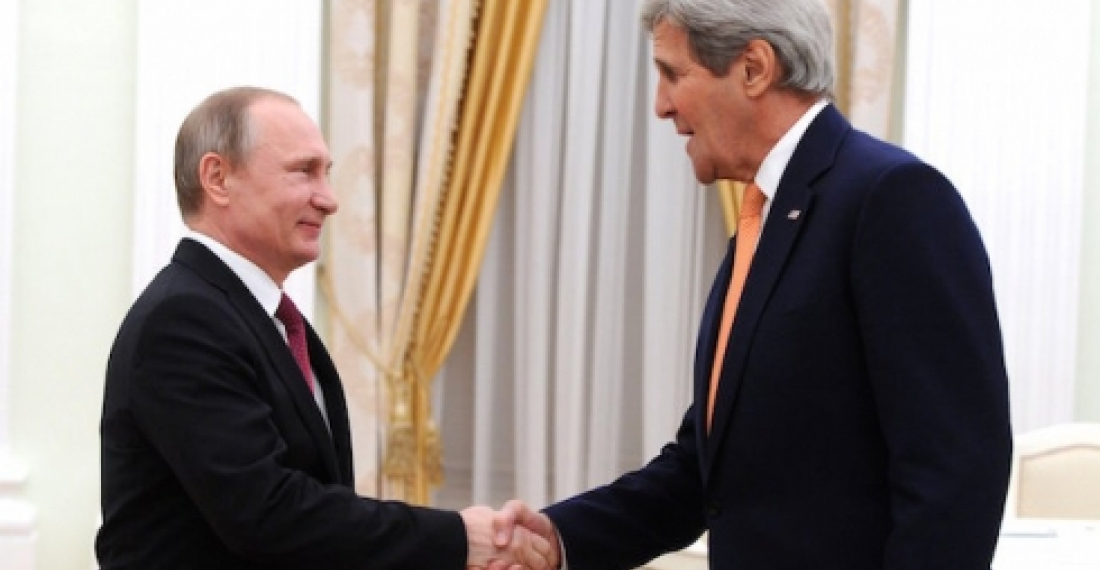American Secretary of State John Kerry is to meet Russian president Vladimir Putin on Thursday, according to the Kremlin.
"On Thursday late afternoon (July 14) President Putin will receive U.S. Secretary of State (John) Kerry and (Russian) Foreign Minister Sergei Lavrov. A set of themes is quite predictable: they include both Syria and Ukraine along with bilateral issues (of Russia and the U.S.)," spokesman Dmitry Peskov said.
"It is Lavrov who is Kerry’s counterpart," Peskov noted. "They (Lavrov and Kerry) will be having substantial talks on Friday".
Presidents Obama and Putin spoke by phone last week, with Nagorno-Karabakh on the agenda.
SOURCE: TASS.ru
PHOTO: Putin and Kerry






